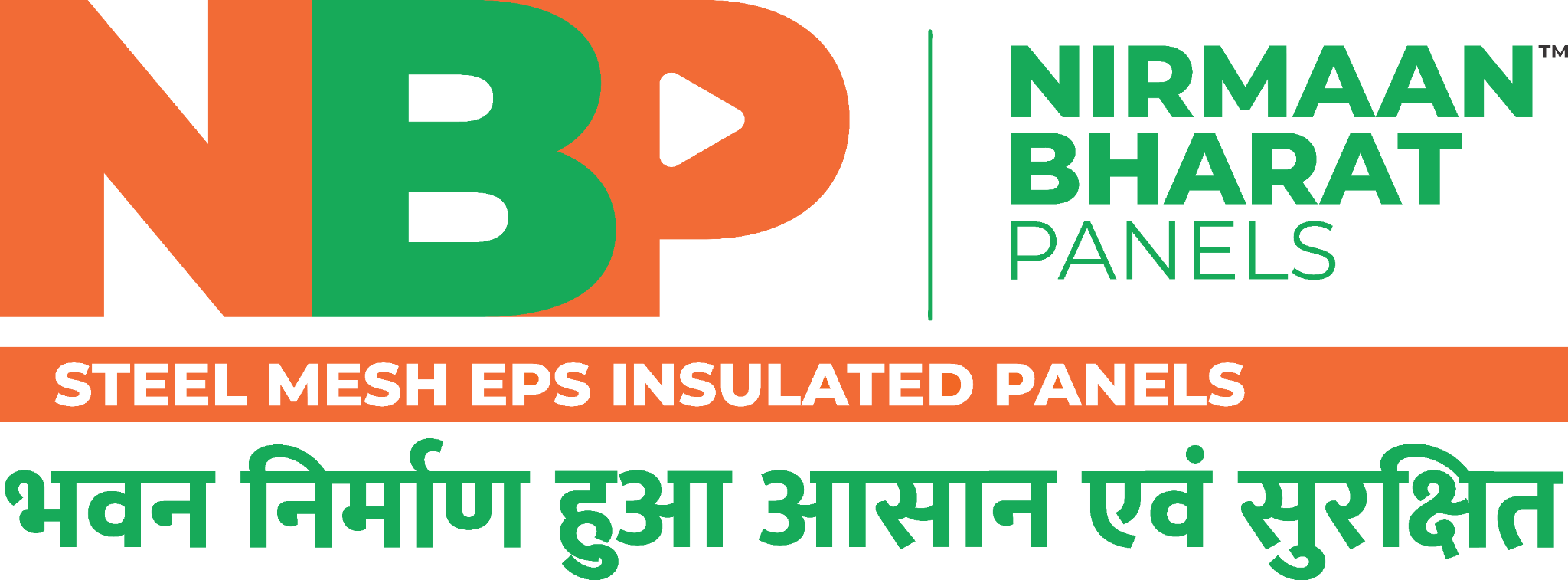In recent years, construction methods in India have evolved significantly, embracing innovative materials and technologies to enhance efficiency, sustainability, and cost-effectiveness. One such innovation is Expanded Polystyrene (EPS) wall panels, a versatile building solution gaining popularity for residential and commercial projects. This blog explores the advantages of using EPS wall panels for Indian homes and businesses and answers some frequently asked questions (FAQs) about this revolutionary building material.
Table of Contents
ToggleWhat are EPS Wall Panels?
EPS wall panels are lightweight, insulated panels made of expanded polystyrene, a durable and versatile material. These panels consist of a core of EPS sandwiched between two layers of concrete, gypsum, or other materials. They are designed to provide excellent thermal insulation, structural strength, and ease of installation, making them ideal for various construction applications.
1. Energy Efficiency
One of the primary advantages of EPS wall panels in India is their exceptional energy efficiency. The EPS core offers outstanding thermal insulation, reducing heat transfer between the exterior and interior of buildings. This quality is particularly beneficial in the diverse climates of India, where temperature fluctuations can be extreme.
By using EPS wall panels, homeowners and businesses can achieve significant energy savings on heating and cooling costs. This energy efficiency not only leads to lower utility bills but also reduces the carbon footprint of buildings, contributing to a more sustainable future.
2. Cost-Effectiveness
EPS wall panels offer a cost-effective building solution for both homes and businesses. The lightweight nature of EPS panels makes them easier and faster to handle during construction, reducing labor costs and overall project timelines.
Additionally, the insulation properties of EPS panels help decrease reliance on heating and cooling systems, leading to long-term savings on energy bills. Although the initial expenditure for EPS wall panels may be somewhat greater than that of conventional materials, the advantages over time frequently surpass the initial financial outlay.
3. Rapid Installation
The element of time plays a crucial role in the success of any construction project. EPS wall panels can significantly reduce construction time due to their lightweight design and ease of installation. These panels are pre-manufactured, allowing for quick assembly on-site.
Construction teams can install EPS wall panels quickly and efficiently, leading to faster project completion. This advantage is especially valuable for businesses looking to minimize downtime during renovations or expansions.
4. Versatility and Design Flexibility
EPS wall panels are available in various sizes and configurations, allowing for versatile design options in both residential and commercial projects. They can be customized to meet specific architectural requirements and can be used for walls, roofs, and floors.
The design flexibility offered by EPS wall panels enables architects and builders to create unique and innovative spaces without compromising structural integrity. Additionally, these panels can be easily cut and shaped to fit any design, making them ideal for complex projects.
5. Durability and Strength
Despite their lightweight nature, EPS wall panels are known for their durability and strength. The panels are resistant to moisture, pests, and mold, ensuring a longer lifespan for buildings constructed with them.
Furthermore, the concrete or gypsum outer layers provide additional structural integrity, making EPS panels suitable for a variety of building types, including high-rise structures. This durability translates into lower maintenance costs and a longer-lasting investment for homeowners and business owners.
6. Sustainability
Sustainability is becoming increasingly important in the construction industry, and EPS wall panels align with eco-friendly building practices. The energy efficiency of these panels reduces the overall environmental impact of buildings, and the materials used in their production are often recyclable.
Moreover, EPS panels can help achieve green building certifications, such as LEED (Leadership in Energy and Environmental Design), which can enhance the marketability of a property. As consumers become more environmentally conscious, adopting sustainable building materials like EPS wall panels can be a significant selling point.
7. Noise Reduction
In urban areas where noise pollution is a concern, EPS wall panels provide an effective solution for sound insulation. The density and composition of EPS materials help reduce sound transmission between spaces, creating a quieter and more comfortable environment for residents and employees.
This soundproofing capability makes EPS wall panels an excellent choice for residential homes, offices, schools, and hospitals, where noise control is crucial for productivity and well-being.
8. Fire Resistance
Fire safety is a paramount consideration in construction. EPS wall panels can be manufactured to meet specific fire resistance standards, making them a safe choice for various applications. The outer layers of concrete or gypsum enhance the fire-resistant properties of EPS panels, reducing the risk of fire-related incidents.
By incorporating EPS wall panels into building designs, homeowners and businesses can enhance the overall safety and compliance of their structures.
9. Reduced Structural Load
EPS wall panels are significantly lighter than traditional building materials like concrete blocks or bricks. This reduced weight minimizes the overall structural load on foundations and supports, allowing for greater design flexibility. Builders can often use simpler and less expensive foundations, leading to cost savings in the overall construction process.
Furthermore, the lightweight nature of EPS panels can also improve seismic performance. In earthquake-prone areas of India, using lighter materials can help reduce the risk of structural damage during seismic events, enhancing the safety of buildings and occupants.
10. Moisture Resistance
EPS wall panels exhibit excellent moisture resistance, which is crucial in the humid climates often experienced in various regions of India. Unlike traditional materials that can absorb moisture, leading to mold growth and structural damage, EPS panels do not retain water. This property helps maintain indoor air quality and reduces the risk of moisture-related issues, ensuring healthier living and working environments.
Additionally, the moisture resistance of EPS panels contributes to the longevity of the structure. Buildings constructed with EPS wall panels require less maintenance and repair over time, further enhancing their cost-effectiveness and appeal for homeowners and business owners alike.
Conclusion
EPS wall panels offer numerous advantages for Indian homes and businesses, including energy efficiency, cost-effectiveness, rapid installation, versatility, durability, sustainability, noise reduction, and fire resistance. As construction practices continue to evolve, integrating innovative materials like EPS panels can enhance building performance, reduce environmental impact, and create comfortable living and working spaces.
By choosing EPS wall panels in India, builders and property owners can invest in a solution that not only meets modern construction demands but also aligns with a sustainable future.
FAQs About EPS Wall Panels
Q1. Are EPS wall panels suitable for all types of buildings?
Ans: Yes, EPS wall panels can be used for various types of buildings, including residential homes, commercial spaces, industrial facilities, and high-rise structures. Their flexibility and ability to adjust render them appropriate for numerous applications.
Q2. How do EPS wall panels perform in extreme weather conditions?
Ans: EPS wall panels are designed to withstand various weather conditions. Their thermal insulation properties help regulate indoor temperatures, while the outer layers provide protection against moisture and other environmental factors. When properly installed, EPS wall panels can perform well in extreme heat, cold, and humidity.
Q3. Can EPS wall panels be recycled?
Ans: Yes, EPS is a recyclable material. When EPS wall panels reach the end of their lifespan, they can be recycled and repurposed, contributing to sustainable building practices and reducing waste in landfills.



